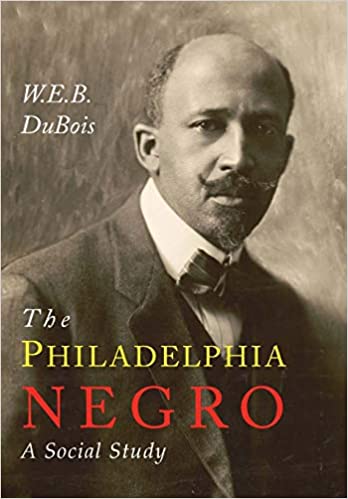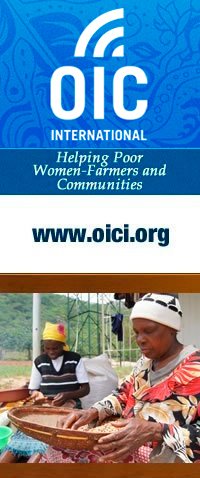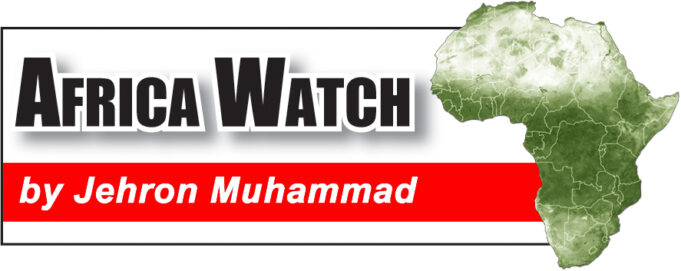The City of Philadelphia, long a home to successive generations of people of African origin, in recent years has witnessed a new population arriving from the Caribbean and the continent of Africa.

As sociologist W.E.B. Dubois chronicled in his landmark 1899 sociological study “The Philadelphia Negro,” Philadelphia has been home to different Black groups from immigrants and migrants to African slaves in the 17th and 18th centuries, freedmen in the 19th century, to waves of the “Great Migration” from the South in the late 19th and early 20th centuries.
The most recent increase has come directly from the continent of Africa.
Dr. Stanley Straughter is a local specialist in International Business Development with nearly 40 years of experience in international development and has lived and worked in several countries in Africa and the Caribbean.
He gives much thanks, praise and credit to the late Rev. Dr. Leon Sullivan, pastor of Zion Baptist Church, who provided him with his first trip to Africa.
“I went on my first trip to Africa on an agriculture project organized that was in Togo (West Africa),” Mr. Straughter told Africa Watch. He said that visit became the Togo Organization Industrialization Center-International or Togo OICI.
He said eventually Dr. Sullivan set up a “global network” that included countries in Africa and the Caribbean as well as Great Britain and Poland. Dr. Sullivan also put together historic African- African American Summits on the Motherland in the 1990s that brought Black business, political, cultural, religious and social leaders together.
According to its website, “OIC International (OICI), founded by Rev. Dr. Sullivan is a non-profit organization headquartered in the United States. Since 1970, OICI has been improving the quality of life of low-income, disadvantaged individuals through the provision of skills training, business development, health and food security programs in the developing world. OICI’s programs are comprehensive in nature, and aim to give individuals the knowledge and tools they need to build sustainable futures for their families and their communities.”
Asked about the arrival of Africans in Philadelphia, Dr. Straughter said, “We had several explosions of people.” “First people that came to go to colleges and universities in the 1960s and 1970s,” he noted.
Dr. Straughter has designed, implemented and directed the Minority Export Development Technical Assistance Program for the Pennsylvania Department of Commerce and provided management and technical assistance to over 300 so-called minority firms in the Commonwealth of Pennsylvania in international trade, exporting, importing, joint ventures and organizing trade missions.
He talked about how civil war in Sierra Leone and Liberia impacted African migration into Philadelphia.

Dr. Straughter said, “Civil war in Liberia went on for about 15 years and you had people continuously leaving and coming to the U.S. They came here with nothing.”
Many fleeing from war-torn West African countries lived along commercial corridors in Southwest Philadelphia, he noted. Not qualifying for welfare or any kind of assistance, they “started small businesses,” he said. “Little micro businesses … so if you walk along those corridors, you’ll see hundreds of businesses that started with no support from anyone, not the city or the state. So using their own resources, they pulled themselves up by their bootstraps.”
A Human Rights Watch report about war in Liberia offered a look what Liberian men, women, and children had experienced. “They were gunned down in their homes, villages, marketplaces, and places of worship. In a few cases hundreds of civilians were massacred in a matter of hours. Girls and women were subjected to horrific sexual violence including rape, gang-rape, sexual slavery, torture, and outrages on personal dignity. Villages were destroyed and looted. Children were abducted from their homes and schools and pressed into service, often after witnessing the murder of their parents. The violence blighted the lives of tens of thousands of civilians and displaced almost half the population,” said Human Rights Watch.
And where, according to the Philadelphia Inquirer, passersby in southwest Philadelphia saw shattered buildings, Liberian immigrant Voffee Jabateh saw something more. He saw a future cultural center with offices for social workers inside a former crack house at 55th Street and Chester Avenue.
“The goal,” reported the Inquirer, “beyond much-needed neighborhood revitalization, he said, is to foster understanding between Southwest Philadelphia natives and the thousands of West African immigrants who since 1990 have tripled the number of foreign-born residents in that blighted part of the city.
“While they don’t show up on short lists of the region’s largest immigrant groups, these immigrants, many from Liberia, are transforming parts of Southwest, renovating houses, opening groceries featuring African delicacies, and reclaiming corners that gang bangers once ruled.”
Dr. Straughter said there are anywhere from 50,000 to 75,000 African and Caribbean immigrants from 35 countries living in Southwest Philadelphia.
He also attributes much of the latest development to former Councilwomen Jannie Blackwell.
“We had under Councilwomen Blackwell’s leadership and the introduction under Mayor John Street’s administration the Mayors Commission of African and Caribbean Affairs,” he said.
According to Dr. Straughter, under the commission “we were able to build capacity in those organizations and in those communities.”
He also stressed with each country you had a new community organization. “We had 35 different organizations. We had a Mali organization, we had a Liberian organization, and each of those organizations began working with Councilwoman Blackwell organizing and building and incorporating their own 501C3 and taking care of their own organizations or own communities.”
Some development projects have done better than others.
In Southwest Philadelphia, Dr. Straughter said, “We have the African Cultural Alliance of North America (ACANA), which started five years ago. It’s about a $3 million or $4 million operation at 55th and Chester. It’s building its own African center. It has a full time clinic and a legal immigration component to provide services to all immigrants, not just for Africans.”

In addition, it “provides health care and has a medical doctor on site and a registered nurse on staff,” he noted.
“The mission of ACANA (according to its website) is to help refugees, immigrant families and all other residents of Philadelphia access legal, health and other social services with a special focus on women, children, youth and the elderly in their resettlement process in Pennsylvania. ACANA also produces and presents African cultural performances and recording artists to create an awareness of African arts and culture. To this end, we strive to promote the preservation of cultural values as well as support artists’ efforts to promote their own vocations in their new environment.”
“We also have the Africom, which is the Coalition of African and Caribbean Organizations that provide services to African and Caribbean immigrants. It’s a coalition but the acronym is Africom,” said Dr. Straughter.
The coalition is an umbrella non-profit, tax-exempt organization that brings together various African, American and Caribbean community organizations and individuals, who subscribe to the mission and ideals of Africom, not to be confused with U.S. military operations in Africa with the same acronym.
Dr. Straughter said these organizations grew out of the need to support the community. “And the kinds of things that Councilwoman Blackwell was able to do with the Mayors Commission to provide technical assistance to assist in terms of growth, which included raising money for them, access to health care for them.”
There is also the African Caribbean Business Council of Greater Philadelphia, created 2006, which he chairs. Dr. Straughter says on the council’s website: “Together we can make African and Caribbean Entrepreneurs in the Greater Philadelphia Area more competitive in local and American markets … .”
On the drawing board, he shared, “Is how to build an African trade center, an African, Caribbean performing arts center. Another one is an African Innovation Technology Hub. By the way, we have all these innovation technology hubs around the city, but not one of them is in the Black community. Not one.”
Straughter closed with a grim observation.
Philadelphia is a city of neighborhoods “but you don’t have one thing welcoming Black people to Philadelphia. This city is almost 50 percent Black and you go look on the city website for tourism and there’s nothing. They welcome every ethnic group besides Blacks. And then the real tragedy, it’s that we got 1.3 billion people on the continent of Africa, got 54 countries and there is not one thing welcoming Africans and people of African descent to this city,” he said.
Follow @jehronmuhammad on Twitter.













